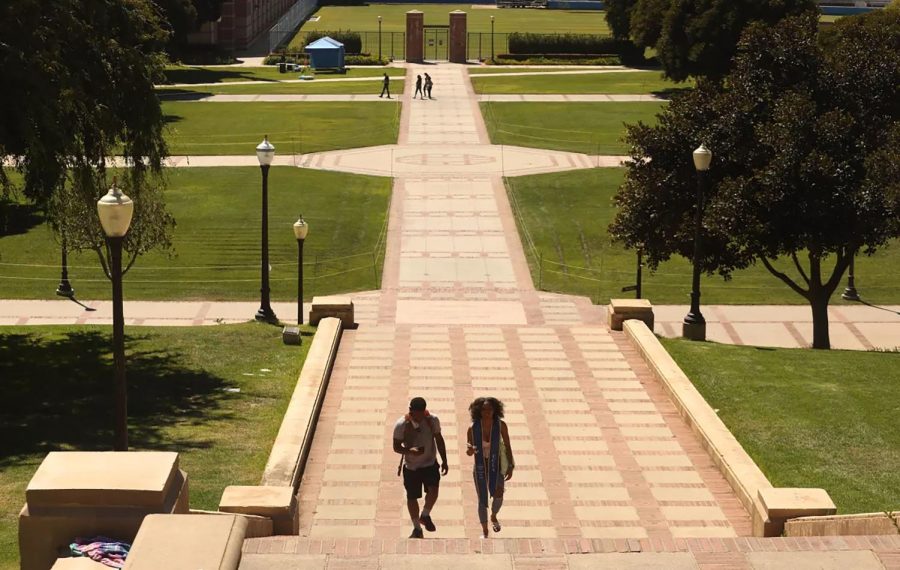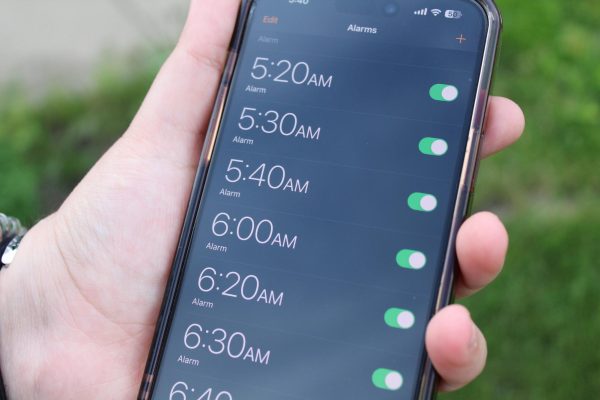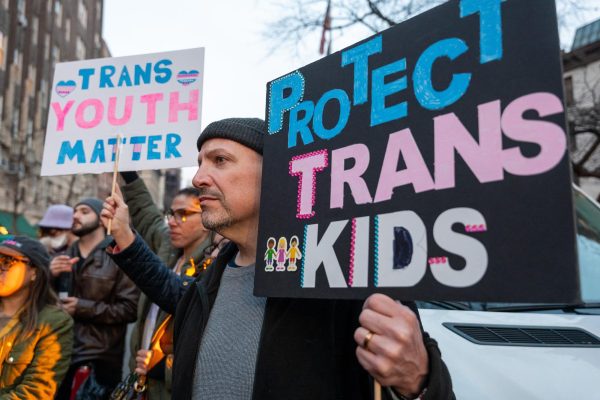Opinion: Affirmative action should stay in place
Banning affirmative action would negatively affect minority groups that have already faced challenges as is
Genaro Molina / Los Angeles Times / TNS
As the U.S. Supreme Court opens oral arguments Monday on whether to strike down affirmative action, UC’s long struggle to bring diversity to its 10 campuses offers lessons on race-neutral admission practices.
November 28, 2022
The nation’s most selective colleges receive hundreds of thousands of applications yearly. Competition is cutthroat, and the odds of getting in are low for everyone. For minorities, however, affirmative action gives a slight boost in the competition; as a way to mend previous discrimination. Affirmative action has flaws, but it needs to remain in place for everyone’s sake, minority or not.
In education, affirmative action means admissions officers consider a student’s race or ethnicity when reviewing their application to ensure inclusion of minorities. Similar policies originated under President John F. Kennedy, over 60 years ago, to prevent discrimination.
This year, the Supreme Court is hearing two cases that could end affirmative action. Students for Fair Admissions sued Harvard and the University of North Carolina, claiming that race-conscious admissions violate equal protection laws.
Nearly 40% of people in the United States are part of a minority group, per the 2020 Census. With this in mind, minority enrollment rates in Ivy Leagues, where affirmative action is prominent, are still low. If a group makes up two-fifths of the population, that should reflect on college campuses. If the policy is banned, college enrollment rates for minorities will likely drop, making campuses less and less diverse.
Affirmative action does not mean colleges admit unqualified individuals. It means that if there are two equally qualified students, one white and one minority, the minority is accepted to boost diversity and mend previous discrimination.
Diversity is always important, especially on college campuses. Being surrounded by different kinds of people helps in getting a high-quality education, says the American Council on Education. When exposed to other cultures and beliefs, people learn new perspectives and develop empathy for those from different walks of life. All this, of course, leads to a unified society. Had society been more accepting and open-minded in the first place, affirmative action wouldn’t even be needed today.
Perhaps more importantly, affirmative action begins to remedy past discrimination minorities have faced. Today, minorities earn half as much as an average white household and own around 15% of net wealth, according to the Federal Reserve. These numbers are not surprising. They are due to the barriers minorities have faced in education and career opportunities. A college degree, let alone one from an elite institution, will lead to more opportunities. In the long run, this can help close the wealth gap. If affirmative action helps slightly with that, it should stay in place.
Opponents argue affirmative action encourages reverse discrimination against white students. That would mean colleges place hurdles for white students just because of their race, which is not the case. At most U.S. colleges, even those with affirmative action, white students continue to be the majority.
Colleges don’t have race quotas and are not rejecting white students on purpose. They are, however, recognizing minorities’ hardships by providing opportunities that weren’t there before.
If anything, the Supreme Court cases should serve as a reminder that the college admissions system is flawed. Many factors affect performance in high school and applying to college — economic status, race, family situation and more. The current admissions system could never encompass all that. Banning affirmative action would only worsen an already broken system — and set society back.






















